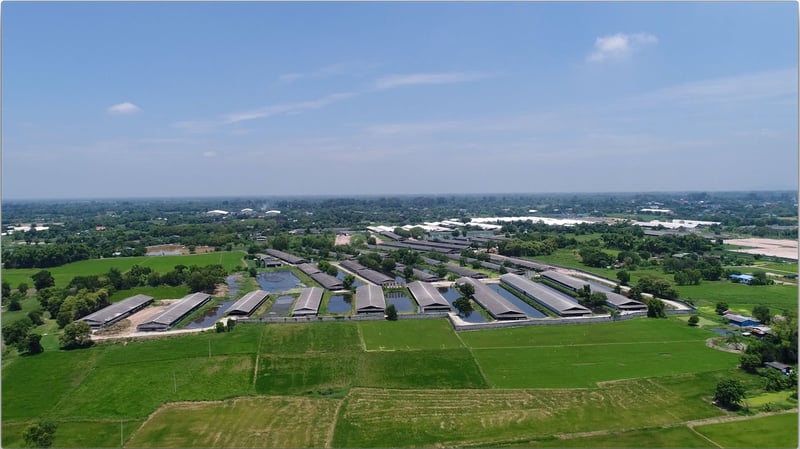
COP30 has ended in Belém with a clear gap between the scale of the climate crisis and the decisions made at the summit. The role of industrial animal agriculture was barely acknowledged, even though the Amazon itself shows how urgently this issue needs attention.
We warned throughout the summit that the decisions on the table did not meet the moment. The Belém Political Package includes a plan to develop a just transition mechanism, but there was insufficient progress elsewhere on vital issues such as implementing a roadmap to end deforestation, or a phase out of fossil fuels – including in the agricultural sector. Both are essential for protecting animals, people and the forests that hold the world’s climate together.
Kelly Dent, our Director of External Engagement, attended the summit and reflected on the lack of action.
"COP30 has been dubbed the ‘COP of truth’, yet a truth not being acknowledged is we cannot tackle the climate crisis while turning our back on the destruction and suffering caused by industrial animal agriculture.
For a COP hosted in the Amazon, it’s shattering that deforestation took a back seat. The wildlife, indigenous people and traditional communities who call the forest their home deserved better than this.
We are pleased to see an emerging recognition of food systems in the negotiations as well as in in the Belem Declaration on Hunger, Poverty and Human-Centred Climate Action. It’s positive to see recognition in the text of the role of small-scale farmers, however it’s concerning there is no mention of animal welfare, when the health of animals and our environment are so importantly intertwined.
Although closed door negotiations provided little room for civil society, COP30 gave the opportunity for movements supporting animals to have their voices heard, from outside protests directly calling out big agribusiness, to official events where we demonstrated the power of food systems that reduce emissions, are kinder to animals and support small scale farmers.
The Belem Political Package falls short of what animals, people and planet need to thrive. It fails to acknowledge that agriculture is the major driver of deforestation, and that cutting down our forests is supercharging emissions."
Industrial agriculture still sits outside the climate spotlight
Agriculture is the second biggest source of global emissions after fossil fuels. Intensive animal farming sits at the heart of this problem, yet COP30 did not confront it.
"Industrial animal agriculture is not only a leading cause of emissions, but a major driver of deforestation, causing wild and farmed animal suffering.
Equitable, humane and sustainable farming practices must replace the destructive industrial agriculture model. These solutions not only address the climate crisis but also stop the suffering of billions of animals trapped in factory farms," said Kelly Dent.
A recent investigation by DeSmog and the Guardian revealed that more than 300 industrial agriculture lobbyists were present at COP30. Their influence was felt strongly, while those standing up for animals and communities struggled to be heard.
"Big ag won at COP30, while wildlife and farmed animals were once again reduced to commodities and excluded from the climate conversation.
"Agribusiness giants like JBS are driving deforestation, animal cruelty, and emissions, yet they had a VIP seat at the COP30 table. These companies are not climate champions, they are breaking the planet, and wildlife, farmed animals and communities are the collateral damage.
"The UNFCCC must act decisively to cut big ag’s influence if it hopes to salvage credibility ahead of COP31 in Türkiye."
Looking ahead to COP31
The final texts from COP30 did not include measures to protect animals, but our work continues. We will keep pressing for food systems that are humane, sustainable and fair for the people who farm on a small scale.
"At COP31, governments must support a just transition away from factory farming, toward equitable, humane and sustainable food systems. Governments need to recognise the way we treat animals is connected to our fight against climate change. Climate action cannot be just about humans, because when animals and ecosystems suffer, the outcomes for people are diminished.
We will keep standing up for wildlife and farmed animals until their voices are included in UNFCCC negotiations, and until it is widely acknowledged that animal welfare is inseparable from the health of our planet."